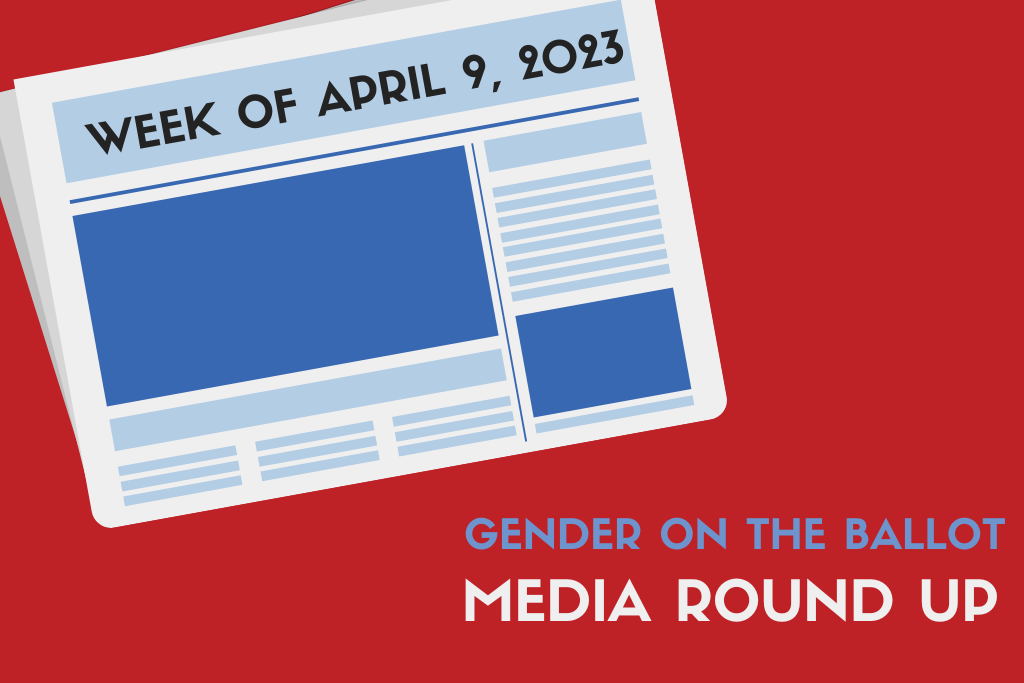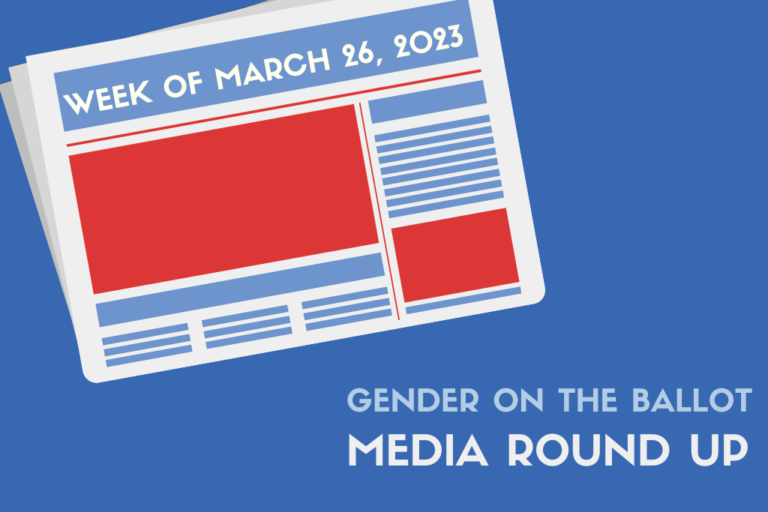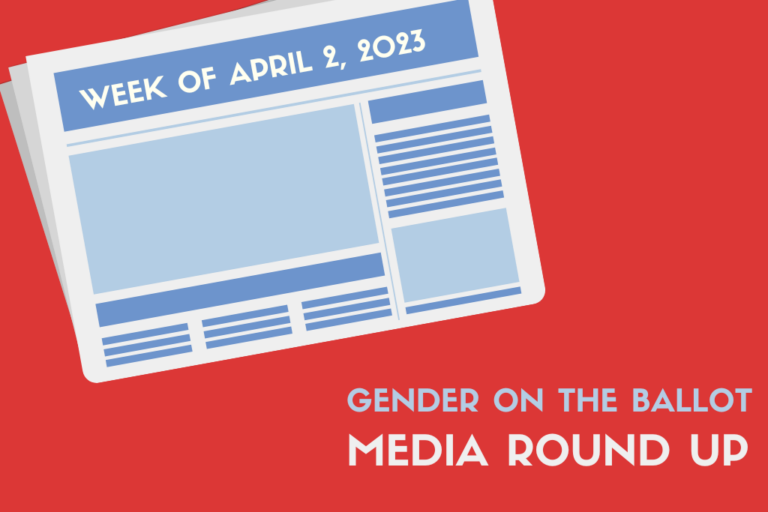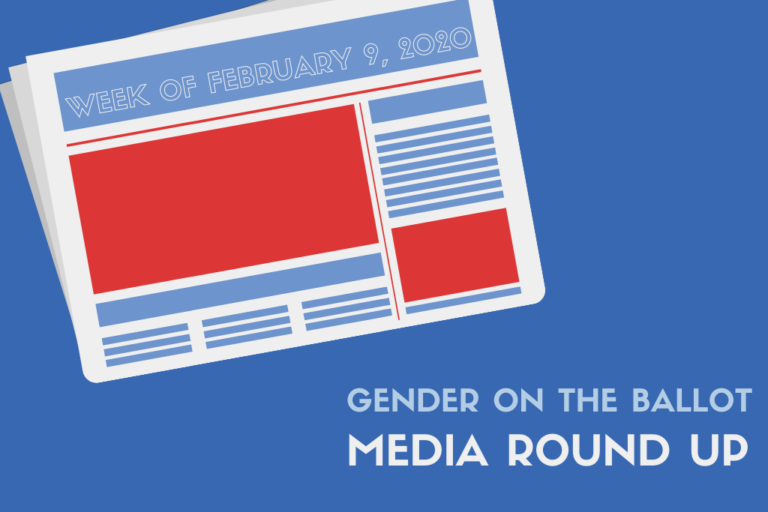Happy Friday! Welcome to our Media Round Up. Each week we’re collecting and sharing…
Gender + Politics Media Round-Up: Week of April 9th

Happy Friday! Welcome to our Media Round Up. Each week we’re collecting and sharing our favorite gender + politics stories. Here’s what caught our eye this week:
Black maternal health takes center stage this week
Okezi T. Otovo, Washington Post
This past week marked the sixth annual “Black Maternal Health Week,” created by the Black Mamas Matter Alliance as “a national call to support education and advocacy and to amplify the voices of Black mothers nationwide.” This year’s theme was Our Bodies Belong to Us: Restoring Black Autonomy and Joy, serving as a direct response to today’s political landscape, and Black Women’s long history of advocating for “bodily autonomy.”
Read the full story here.
Pandemic’s Effect on U.S. Birth Rates May Have Depended on Politics
Healthday, U.S. News
According to a new study conducted by Linda Kahn, a senior researcher and assistant professor at NYU Grossman School of Medicine at NYU Grossman School of Medicine in New York City, and her team, the pandemic’s effects on birth rates differed depending on the state. Overall, democratic and racially diverse states experienced the largest drops in birth rates. When looking closer at the data, states also widely varied in how the “first wave” of the pandemic affected births. For example, New York state saw a huge drop versus Idaho, Montana, and Utah saw birth rates increase after the pandemic’s “first wave.”
Read the full story here.
Biden administration will propose new privacy safeguards for women seeking abortions
Jasmine Wright and Nikki Carvajal, CNN
On Wednesday, the US Department of Health and Human Services proposed a new rule aimed at protecting privacy and prohibiting the prosecution of people who seek abortions. The new proposal coincides with Vice President Kamala Harris planning an interagency taskforce meeting on reproductive rights at the White House. Some of the attendees of this meeting will include Attorney General Merrick Garland, and Health and Human Services Secretary Xavier Becerra. The current guidance, which is still in effect, protects HIPAA privacy rights by not requiring patient information to be disclosed under certain circumstances. However, some officials said that they find some providers would still “get fearful,” about following the guidance if they were subpoenaed.
Read the full story here.
This is how we can drastically increase the number of women in politics
Lauren Boone, MSNBC
Although women have made immense progress in political representation: Kamala Harris is the country’s first female vice president, there is a record number of women serving in governorships in the U.S., and there is a steady rise of women serving in public office, politics remains largely male-dominated. A new study from the non-partisan, non-profit organization She Should Run shows that nearly a quarter of women are interested in seeking elected office. The study shows that women are motivated to run for office due to issues that affect them and their communities. The issues include, “… the economy, climate change, reproductive health, racism and gun violence.” Women are also most likely to act on issues related to children, health, education, and poverty.
Read the full story here.







